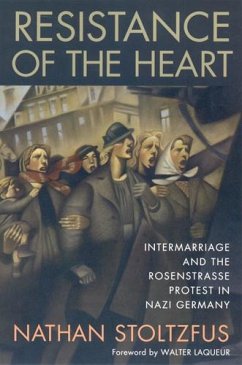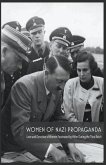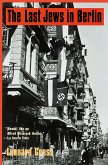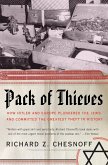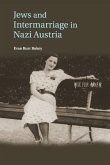In February 1943, the Gestapo swiftly arrested approximately 10,000 Jews remaining in Berlin. Most of them died within days in the gas chambers of Auschwitz. Two thousand of those Jews, however, were locked into a temporary collection center on a street called Rosenstrasse, in the heart of Berlin. These two thousand had non-Jewish, German husbands, wives, and children. As news of the huge arrest spread throughout the city hundreds of Gentile spouses, mostly women, hurried to the Rosenstrasse in protest. A chant broke out: "Give us back our husbands". For a week the Berlin police and uniformed SS dispersed the women with threats to shoot them down. Again and again, the women regrouped and advanced in solidarity until the Gestapo backed down and freed their loved ones. The Rosenstrasse protest came at a time when the Nazi terror system had ground into its highest gear. This open protest challenged the regime on its very doorstep and became the single successful public protest inside Nazi Germany against Hitler's campaign to annihilate European Jews. Who were these intermarried Germans who dared to disobey history's most ruthless regime? Why did they choose to suffer the stigmas of intermarriage? And why did Hitler and Goebbels give in to the protesters and release two thousand Jews? If more Germans had protested, might the Holocaust have been slowed or even stopped? Resistance of the Heart is a powerful response to these questions. The history of the Rosenstrasse protest demonstrates the courage -- and compromise -- of self-protective resistance. Using interviews with survivors and thousands of Nazi records never before examined in detail, Nathan Stoltzfus has reconstructed aprecise, inspiring story.

